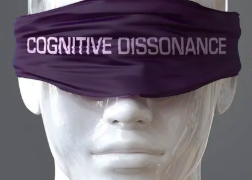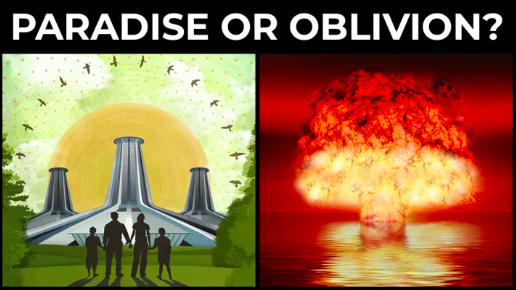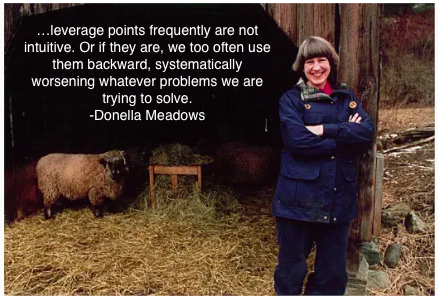Today’s Contemplation: Collapse Cometh CCIX– Keep Calm and Carry On… Human Ingenuity and Technology Will Save Us! Part 2
Keep Calm and Carry On…Human Ingenuity and Technology Will Save Us! Part 2
In Part 1 of this Contemplation (Website Medium Substack) I discuss how our species seems to be responding to the signals our planet and society are sending as they become increasingly stressed. This strain, I argue, is a result of humanity’s ever-present problem-solving behaviour that not only increases complexity but consumes huge amounts of resources while creating significant quantities of waste that is overloading compensatory sinks.
This particular approach to ‘solving’ problems has helped to lead humanity past the natural carrying capacity of our planet and into the predicament of ecological overshoot. Research suggests that we have, in fact, surpassed a number of planetary boundaries in our drive to ‘solve’ most of the issues we encounter in our survival quest.
(https://www.stockholmresilience.org/research/planetary-boundaries.html)Because of our overshoot and the environmental and societal stressors it is resulting in, we highly emotional beings have managed the anxiety that accompanies the sense of loss and change that the consequences of overshoot bring in a variety of ways. As story-tellers and tool-makers, humans have created tales and technologies to help in our pain avoidance and aid in our survival. [Note: while the ways in which Homo sapiens address this pain-avoidance/pleasure-seeking behaviour are unique, the basic behavioural response is not (aka Thorndike’s Law of Effect–while not a ‘hard and fast’ law–does seem to help explain a lot of animal behaviour).]
As a result of all this, a growing number of people seem to be attempting to negotiate their way out of our various predicaments in order to reduce their anxiety/pain. And many have done/are doing this by placing their faith in quick techno-fix ‘solutions’. Many of these ‘solutions’, however, are neither sustainable nor even actually being produced (they’re conceptual/theoretical in nature); and their pursuit is and will continue to exacerbate the ‘problems’ they are being called upon to ‘solve’.
As our unsustainable, global-industrial society continues its journey towards ‘collapse’ and the tension grows between our propensity to expand (both on a population and economic level) and the ecological systems of our planet, we should expect the psychological defense mechanisms most humans are employing to minimise the stress to become more pronounced (as Kevin Hester suggested in a comment on Part 1, “the perfect storm of non-linear change and exponential cognitive dissonance”. Concomitantly, we are increasingly likely to experience a doubling-/tripling-down of this rush to find quick solutions by way of our dominant adaptive behaviour: pursuing technologies. And it doesn’t help that the world’s profiteers are pushing the industrial products they help to manufacture and sell as humanity’s salvation.
That is what this Contemplation discusses.
You Got A Problem? We Got A Solution!
As problem-solving organisations society begins to search for ‘solutions’ when ‘problems/stressors’ arise. Typically it zeroes in on the easiest-, quickest-, and least-expensive-to-implement. But just as important as actual actions and policies to address issues is the narrative management that is employed to convince the masses that not only are things being done to address ‘problems’ (so as not to stoke dissatisfaction with the status quo) but that the future is bright and things are getting better because, for example, governing institutions and/or the ‘free market’ work marvellously.
However, faith in the status quo institutions and arrangements can wane, and humanity’s repeated experiments in large, complex societies has shown this again and again.
It would appear that throughout pre/history one approach to this faltering support of society has been to abandon the failing/collapsing systems, especially once the ‘costs’ shouldered by participants outweigh the ‘benefits’ accrued. Families/communities appear to break away from the society in question, as observed in the demographic data via archaeological digs–for example, the largest ‘markers’ of complex societies (i.e., urban centres) display significant population decline just prior to or during the time a society begins to show signs of failing/simplifying institutions (especially sociopolitical ones).
In fact, today’s seemingly significant increase in concern for/awareness of societal collapse, according to archaeologist Joseph Tainter, is an indicator of rising stress with evermore individuals and groups turning to alternative systems of living. Ecovillages. Permaculture. Regenerature agriculture. Transition towns. Pursuing a movement away from modernity’s complex arrangements and living more simply and, ideally, sustainably is therefore a possible response to the expansion of societal and ecological stressors.
Another approach, on a sociopolitical level, is that the societal ‘leaders’ and its various institutions may attempt to unify members and pursue collective action. This is mostly embarked upon via rhetoric and narrative management but can, of course, lead to more ‘forceful’ forms of societal ‘unification’, especially when narrative control is lost.
Typical in this approach of collective action is the leveraging of perceived crises (oftentimes overblown and/or created) to justify policy changes–changes that oftentimes aim to advance favoured agendas that serve to enrich the ruling class. This approach tends to be ‘successful’ since fear is perhaps our strongest emotion and reducing/eliminating it is highly motivating.
And with our species’ tendency to defer to authority, if our ‘leaders’ offer a ‘solution’ to a substantive ‘problem’, the masses lean heavily towards accepting and supporting it (see this). It is no surprise that this approach is often used by the ruling elite given what I have argued several times in previous writings is their primary motivation: the continued control and maintenance/expansion of their revenue streams and the power and prestige that comes with this.
Apart from ‘walking away’ from a ‘collapsing’ society or pursuing ‘collective action’, the most common approaches that are employed by a society’s attempts to adapt to changing conditions gravitate towards resource allocation, technological innovation, and societal flexibility. Drawing upon experience and past crises, societies often employ strategies that have worked previously; technological innovation being the most common one.
The approach of technological innovation has been with Homo sapiens since soon after our species arrived on the planet. From the harnessing of fire by our early ancestors to the recent pursuit of fusion-energy reactors, humans have turned to technology of one kind or another to help us adapt to our surroundings. So, it’s no surprise that this pathway is the one the overwhelming majority of people support and advocate for. Human ingenuity and our technological inventions will always ‘save the day’. And we seem to be doubling-/tripling-down on this particular strategy, perhaps because of the perceived endless ‘success’ it has led to.
But as the investment advice disclaimer goes: “Past success does not guarantee future results.”
sofararchon.comTechnology: It’s Both a Blessing and a Curse (only we often ignore the cursed part)
Where better to look for and pursue short-term ‘fixes’ than in our technology. That long-appreciated ability of our ingenious species to imagine and fashion tools to aid in our survival and the taming of Nature’s unpredictability.
Problem with the climate? Let’s begin geoengineering the atmosphere and carbon capture and storage of that pesky greenhouse gas, carbon dioxide. Loss of pollinators? Let’s create mechanical insects. Running out of hydrocarbons to sustain the unsustainable? Let’s pursue non-renewable, renewable energy-harvesting technologies. Not enough fresh water on the planet? We will simply desalinate the oceans. Pests and disease reducing our food harvests? Genetic modification of plants and the creation of powerful pesticides and fertilisers is the answer. Need to increase our productivity? How about robotic assembly lines and artificial intelligence? Having difficulty predicting the future? No problem, we’ll design complex scientific models to pin it down.
You got a problem? We’ve got a technological solution to address it!
What most tend not to do in our quest for reducing our anxiety is consider the potential negative consequences of our ‘solutions’, especially as they pertain to our technologies. This creates a strong but false sense of security, believing we can ‘solve’ issues without changing the underlying causes. We also very much ignore the ecological consequences of these technologies; or layer even more bargaining on top by creating stories about circular economies, and/or ‘clean and sustainable’ extraction, processing, production, and/or reclamation/disposal.
A handful of my Contemplations that examine how/why our technologies are not ‘solutions’ to our ‘problems’:
‘Renewable’ Energy: See, Hear, and Speak No Evil, Part 1, Website Medium Substack Part 2, Website Medium Substack Part 3, Website Medium Substack
Sorry, folks, but ‘renewables’ are NOT going to save humanity or the planet, Website Medium Substack
Tech ‘Solutions’ Are Us, Website Medium Substack
‘Renewables’: The Great ‘Solution’ (NOT), Website Medium Substack
To EV Or Not To EV? One Of Many Questions Regarding Our ‘Clean/Green’ Utopian Future, Part 1, Website Medium Substack Part 2, Website Medium Substack
In essence, we are placing very leaky bandages (peppered with bacteria and viruses) over gaping wounds and telling ourselves everything is fine.
Most humans very much discount the longer-term risks to take advantage of the shorter-term benefits. So what if we are introducing greater complexity, dependency, and inequality. Human ingenuity and our technological prowess will take care of these things so that everyone can live in a utopian paradise, eventually. We just need to invest in our technologies at a breakneck rate (it’s not a coincidence that this narrative is pushed by those profitting from it, both at a political and corporate/business level). It’s looking more and more like a deal with the devil, however.
 shutterstock.com
shutterstock.com All of this–particularly our pursuit of quick technological fixes–is leading to the adoption of maladaptive strategies that are failing (except through greater bargaining) to consider and address the fundamental issues that are creating societal and environmental stressors. This is resulting in an exacerbation of the very predicaments the ‘solutions’ are attempting to ‘fix’. We are, in essence, speeding up our journey along the Seneca Cliff.
To sum up this dilemma with technological innovation being humanity’s go-to problem-solving response: with its tendency towards short-term ‘solutions’, our species is ignoring the longer-term consequences of virtually all of our technologies. This has become particularly problematic over the past century or more, when we have pursued mass-produced, industrial-based ones that require significantly destructive extraction and refining of finite materials. And while we continue to engage in these ad hoc problem-solving behaviours, we are also overlooking various other impacts which include: troublesome changes in social dynamics; destructive unintended consequences (especially upon ecological systems); creation of complacency; compounding of negative repercussions; and, adverse nonlinear feedback. Our over-reliance on these technologies is exacerbating the very issues we are attempting to address.
In Part 3, I look at how social media is playing its part in steering people’s beliefs with respect to technology ‘saving’ humanity, and what prompted this mini-series of Contemplations.
What is going to be my standard WARNING/ADVICE going forward and that I have reiterated in various ways before this:
“Only time will tell how this all unfolds but there’s nothing wrong with preparing for the worst by ‘collapsing now to avoid the rush’ and pursuing self-sufficiency. By this I mean removing as many dependencies on the Matrix as is possible and making do, locally. And if one can do this without negative impacts upon our fragile ecosystems or do so while creating more resilient ecosystems, all the better.
Building community (maybe even just household) resilience to as high a level as possible seems prudent given the uncertainties of an unpredictable future. There’s no guarantee it will ensure ‘recovery’ after a significant societal stressor/shock but it should increase the probability of it and that, perhaps, is all we can ‘hope’ for from its pursuit.”
If you have arrived here and get something out of my writing, please consider ordering the trilogy of my ‘fictional’ novel series, Olduvai (PDF files; only $9.99 Canadian), via my website or the link below — the ‘profits’ of which help me to keep my internet presence alive and first book available in print (and is available via various online retailers).
Attempting a new payment system as I am contemplating shutting down my site in the future (given the ever-increasing costs to keep it running).
If you are interested in purchasing any of the 3 books individually or the trilogy, please try the link below indicating which book(s) you are purchasing.
Costs (Canadian dollars):
Book 1: $2.99
Book 2: $3.89
Book 3: $3.89
Trilogy: $9.99
Feel free to throw in a ‘tip’ on top of the base cost if you wish; perhaps by paying in U.S. dollars instead of Canadian. Every few cents/dollars helps…
https://paypal.me/olduvaitrilogy?country.x=CA&locale.x=en_US
If you do not hear from me within 48 hours or you are having trouble with the system, please email me: olduvaitrilogy@gmail.com.
You can also find a variety of resources, particularly my summary notes for a handful of texts, especially William Catton’s Overshoot and Joseph Tainter’s Collapse of Complex Societies: see here.











